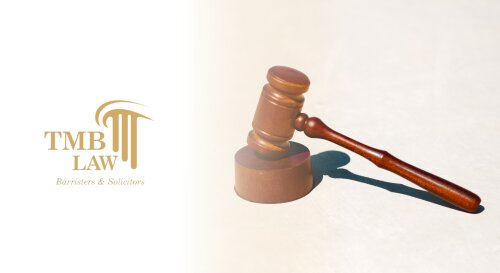Best Elder Law Lawyers in Oshawa
Share your needs with us, get contacted by law firms.
Free. Takes 2 min.
List of the best lawyers in Oshawa, Canada
About Elder Law in Oshawa, Canada
Elder Law in Oshawa, Canada, encompasses a broad range of legal issues that affect seniors and their families. This legal field caters to the specific needs of older adults, dealing with matters such as estate planning, wills, power of attorney, guardianship, long-term care, and elder abuse. Focused on protecting the rights and welfare of the elderly, Elder Law ensures that seniors can enjoy a dignified, secure, and well-planned retirement.
Why You May Need a Lawyer
There are various situations where individuals or their families may require legal assistance in Elder Law:
- Estate Planning: Drafting wills, trusts, and living wills to ensure that the senior's wishes are carried out after their passing.
- Power of Attorney: Establishing legal representation for making financial or medical decisions if the senior becomes incapacitated.
- Guardianship: Appointing a guardian to manage the senior's personal affairs and welfare if they are unable to do so themselves.
- Long-Term Care Planning: Navigating the complexities of long-term care options, including nursing homes and in-home care services.
- Elder Abuse: Addressing and mitigating any form of abuse or neglect that the senior may be experiencing.
- Retirement Benefits: Ensuring the senior receives the benefits they are entitled to, such as pensions or social security.
Local Laws Overview
In Oshawa, Canada, several key laws and regulations pertain specifically to the elderly:
- Ontario Disability Support Program (ODSP): Provides financial assistance and benefits to eligible seniors with disabilities.
- Substitute Decisions Act, 1992: Governs the appointment of a Power of Attorney for personal care and property management, as well as the role of a guardian.
- Ontario Human Rights Code: Offers protections against discrimination based on age in housing, employment, and services.
- Long-Term Care Homes Act, 2007: Regulates long-term care homes, ensuring residents receive proper care and quality of life.
- Ontario Health Care Consent Act: Provides guidelines on consent to treatment and rights to personal health information for seniors.
Frequently Asked Questions
What is a Power of Attorney, and why is it important?
A Power of Attorney is a legal document that grants someone the authority to make financial or medical decisions on behalf of a senior if they become incapacitated. It ensures that their affairs are handled per their wishes even if they are unable to communicate these wishes themselves.
What steps should I take to draft a will?
Consult an Elder Law attorney to draft a will that reflects your wishes. They will ensure all legal requirements are met and that your assets are distributed according to your preferences.
How can I protect my elderly parent from financial abuse?
Monitor their financial accounts, appoint a trustworthy Power of Attorney, and educate them on common financial scams. Consult an Elder Law attorney if you suspect abuse.
What are the eligibility requirements for ODSP?
Seniors must have a disability, be within a specific income and asset threshold, and meet residency requirements in Ontario. An Elder Law attorney can assist in navigating the application process.
How do I choose a reliable long-term care home?
Research homes, tour facilities, read reviews, and consult with an Elder Law attorney to understand your rights and ensure the home meets regulated standards.
Can a senior change their Power of Attorney at any time?
Yes, as long as the senior is mentally competent, they can modify or revoke their Power of Attorney at any time.
What is elder abuse, and how can it be reported?
Elder abuse includes physical, emotional, financial, or neglect. It can be reported to local authorities, elder protective services, or through consultation with an Elder Law attorney.
What is the role of a guardian for an elderly person?
A guardian is appointed to make personal and financial decisions for a senior who is unable to do so. The process is governed by the Substitute Decisions Act, 1992.
Are there benefits available for seniors who are caregivers for their spouses?
Yes, financial support and respite services are available. An Elder Law attorney can help identify and apply for these benefits.
What legal protections exist for seniors in long-term care homes?
The Long-Term Care Homes Act, 2007, ensures seniors receive proper care, are treated with respect, and have the right to participate in decision-making about their care.
Additional Resources
Here are some valuable resources that can provide further assistance:
- Ontario Ministry of Health and Long-Term Care: Offers information on senior health services and long-term care homes.
- Ontario Human Rights Commission: Provides information on age discrimination and protection.
- Ontario Legal Aid: Provides free or low-cost legal services to eligible seniors.
- Elder Abuse Ontario: Offers resources and support for preventing and addressing elder abuse.
- Canadian Pension Plan (CPP): Information and services related to retirement benefits.
Next Steps
If you need legal assistance in Elder Law, consider the following steps:
- Identify Your Specific Needs: Determine the specific Elder Law services you require, be it estate planning, guardianship, or addressing abuse.
- Research and Contact an Elder Law Attorney: Look for an experienced Elder Law attorney in Oshawa, Canada, who can provide the necessary legal guidance and representation.
- Prepare Relevant Documentation: Gather any important documents, such as existing wills, financial records, and medical information, to provide to your attorney.
- Consult the Attorney: Schedule a consultation to discuss your situation and explore your legal options.
- Follow Up: Stay in regular communication with your attorney and follow their advice to ensure all your legal affairs are handled properly.
Lawzana helps you find the best lawyers and law firms in Oshawa through a curated and pre-screened list of qualified legal professionals. Our platform offers rankings and detailed profiles of attorneys and law firms, allowing you to compare based on practice areas, including Elder Law, experience, and client feedback.
Each profile includes a description of the firm's areas of practice, client reviews, team members and partners, year of establishment, spoken languages, office locations, contact information, social media presence, and any published articles or resources. Most firms on our platform speak English and are experienced in both local and international legal matters.
Get a quote from top-rated law firms in Oshawa, Canada — quickly, securely, and without unnecessary hassle.
Disclaimer:
The information provided on this page is for general informational purposes only and does not constitute legal advice. While we strive to ensure the accuracy and relevance of the content, legal information may change over time, and interpretations of the law can vary. You should always consult with a qualified legal professional for advice specific to your situation.
We disclaim all liability for actions taken or not taken based on the content of this page. If you believe any information is incorrect or outdated, please contact us, and we will review and update it where appropriate.









